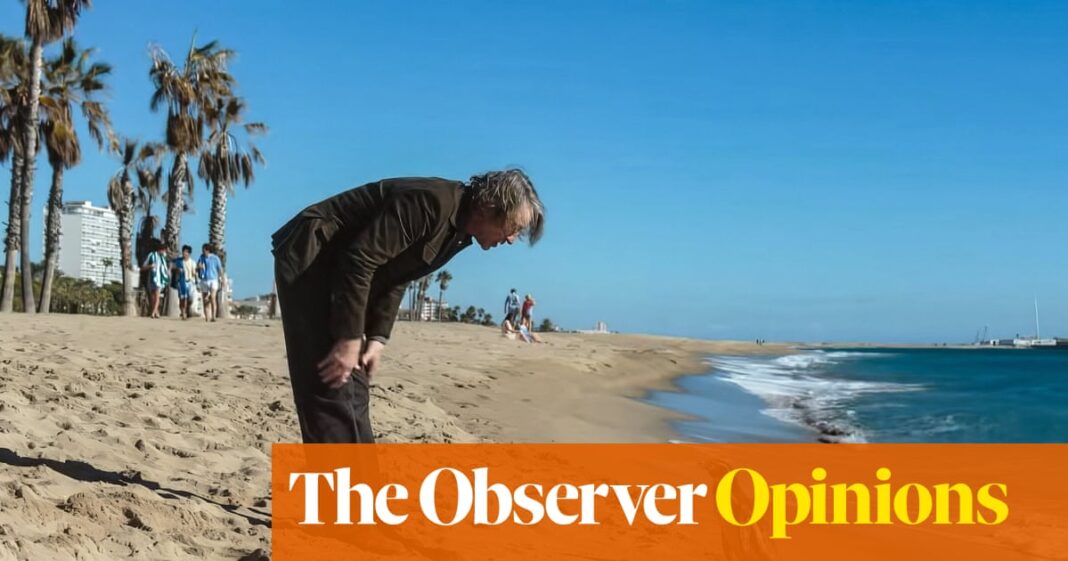Steve Coogan wants people to see his new film, The Penguin Lessons, and think about how they might be living in a wealthy cocoon, disengaged from the world.
The film’s central character – a Briton teaching expat children in Argentina – rescues a penguin and tries to help local people persecuted by the rightwing government. Re-enacting a true story, Coogan is showing how it’s possible to be involved in local communities even when the protagonist is an outsider.
Coogan is concerned about a political shift to the right built on a more selfish outlook, one that focuses on close family and casts a cold eye on people less fortunate. We see it in the US, in the rise of Reform in the UK, and in France and Germany. In the UK, local elections next month will be an opportunity to see if Reform is gaining ground.
It’s clear that a large and growing group of voters support rightwing candidates, and increasingly those from the far right, who promise to cut taxes, scrap regulations, reduce immigration and protect a singular freedom – “the freedom to spend your own money as you wish”, whether from a salary or drawing on family wealth.
To Make America/Britain/France/Germany great again, policies become ever more outlandish, without any apparent concern for the often terrible side effects.
We saw this in the act of economic delusion carried out by Liz Truss in 2022, and we are witnessing it now in the White House. Worse could be to come in the UK should Reform and the National Rally in France and AfD in Germany gain the level of votes needed to influence, if not control, the state.
Political scientists have been tracing the link for some time between financial security and an almost revolutionary, devil-may-care spirit in a growing number of voters.
As transformations go, it is a radical shift, and explains the disappearance of political groups like the home counties liberal Conservative – those who put the rule of law, a mixed economy and community spirit near the top of their wish list. They will be replaced by legions of well-heeled suburban voters in big metropolitan areas who rarely read or listen to news bulletins and care more about being left alone, especially by the government.
It brings about a different kind of social contract. Not the one that ties the rich to the poor because the rich understand everyone is better off if the poorest are raised up and given opportunities. That was the inclusive postwar capitalism that gave baby boomers all their advantages.
This new social contract is one between the better-off baby boomer and the state, which agrees to keep the poor behind high walls and out of sight, allowing the affluent to retain their ill-gotten gains from 30 years of house price increases and final salary occupational pensions (conveniently cancelled across the private sector for the next generation).
Oxford academics Jane Green and Raluca Pahontu found financial security reduces people’s risk aversion, making them more tolerant of taking large political risks.
Ben Ansell, professor of comparative democratic institutions at Nuffield College, Oxford, calls the impulse to vote for radical right policies Fadfo – or “fuck around, don’t find out”. Another Fadfo group votes for radical economic policies because they feel left out by society in some way, “whether it matches to their material circumstances or not”, says Ansell. “It’s about respect and status – or rather the lack of both.”
Was Truss the high-water mark for this way of thinking, after millions of people with mortgages found out very quickly the costs of the short-lived prime minister’s revolutionary tactics?
Not so fast. Those left worse off were far from being in the Trussian vanguard. They had not supported her or Boris Johnson or Brexit before that. They were, and are, the house-buying millennials, whose higher level of education puts them more in the Labour/Lib Dem/Green camp.
Rob Ford, professor of politics at the University of Manchester, says age and education have been the defining characteristics of voters in the last three elections.
The younger and better educated a person is, the more likely they are to see themselves as progressive. The opposite is true for those turning rightwards.
Ford says it is still true that affluent boomers vote more often than other groups, especially the young.
These are depressing messages for Coogan and anyone who is concerned about late-stage capitalism becoming an era when households turn in on themselves – to the benefit of the professional classes and the plutocrats, who get to keep their ill-gotten gains.
Maybe the Truss experiment will be a turning point. Trump’s tariffs could be another: a decade when the gamblers and hucksters promising lottery wins for all are shown to be charlatans.


